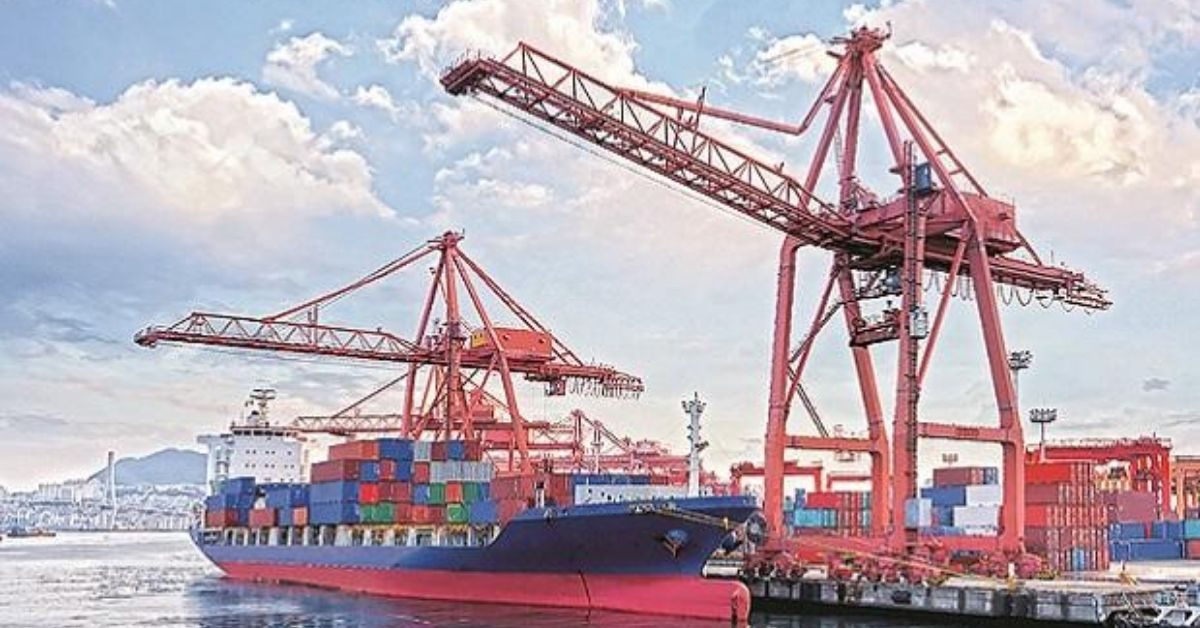A crisis is staring exporters in the face with high freight rates and few ships and containers. These two factors are expected to spoil the upcoming Christmas season.
Alleging that shipping companies are forming cartels, various industry players have approached the government, seeking its intervention and the setting up of a large shipping company under its guidance to break the international monopoly.
A major point the exporters are raising as proof of this is the performance of the top 10 shipping companies in the world in the past one year.
For these top 10 companies (no Indian companies on the list), the average operating profit increased 12-fold, revenue 66 per cent, the margin 27 per cent, and net profit 19,754 per cent in 2021, against 2020. This was on account of a low base, rise in volumes, and increase in freight rates. This is likely to go up this financial year.
In a meeting with the Ministry of Shipping last week, representatives of the spices exports sector had highlighted that at least six of the top 10 shipping lines posted a net profit of over 30-fold in the past one year.
“The top shipping lines seem to have formed a cartel and are controlling freight rates as they know this shortage and crisis will continue until the first quarter of 2023. We want the government to form a big shipping company or scale up the Shipping Corporation of India, or maybe even join hands with private sector players like Essar and Great Eastern Shipping. This will ensure ship availability for India,” Hitesh Gutka, president of the Indian Spices and Foodstuff Exporters’ Association, told Business Standard.
Exporters are saying the shipping companies not accepting the call by ports and skipping calls are leading to blank sailing and also an increase in transit time between various ports.

For example, the transit time to Vancouver, which used to be about 35 days, is now 80 days. Even ships that call the ports are not accepting cargo, leading to exportable stuff getting stuck at Indian ports, causing demurrages and contract cancellations many a time, exporters have indicated.
“The winter orders, focused on the Christmas season, are going to be crucial because it is the most profitable time for exporters from our country. In addition to the container shortage, blank sailing, and transit delay that we are witnessing, higher rates are likely to impact our business for a longer term as we fear these consumers shifting to other countries,” said K Venkatachalam, advisor to the Tamil Nadu Spinning Mills Association (Tasma).
Exporters are expecting blank sailings of the weekly Europe vessel on August 24, September 1, and October 12 from Chennai and Cochin and are seeking government regulation on international shipping lines operating in India.
The spices body said freight rates from Cochin to cities like Melbourne increased even 10-fold in the past one year, while for several routes like Hamburg-Mundra also rates increased over eight-fold.
Shipping lines up defence
According to the Container Shipping Lines Association (CSLA), the only body that represents such firms in India, all efforts have been made by the lines to meet the demand, which has helped Indian exports to grow.
“This has helped India achieve growth in export volumes during the first half of 2021 over 2019 by 12 per cent and over 2020 by 29 per cent. It must also be noted that any increases in freight rates have happened due to increased cost not just in the case of India but in the case of other countries too. It happened more so in the case of China and Southeast Asia,” said Sunil Vaswani, executive director of CSLA.
The shipping lines have placed orders for about 600 new vessels, which will start hitting the waters from the second quarter of 2022. This should help further ease the pressure on space and equipment, he said.
Source : Business Standard







